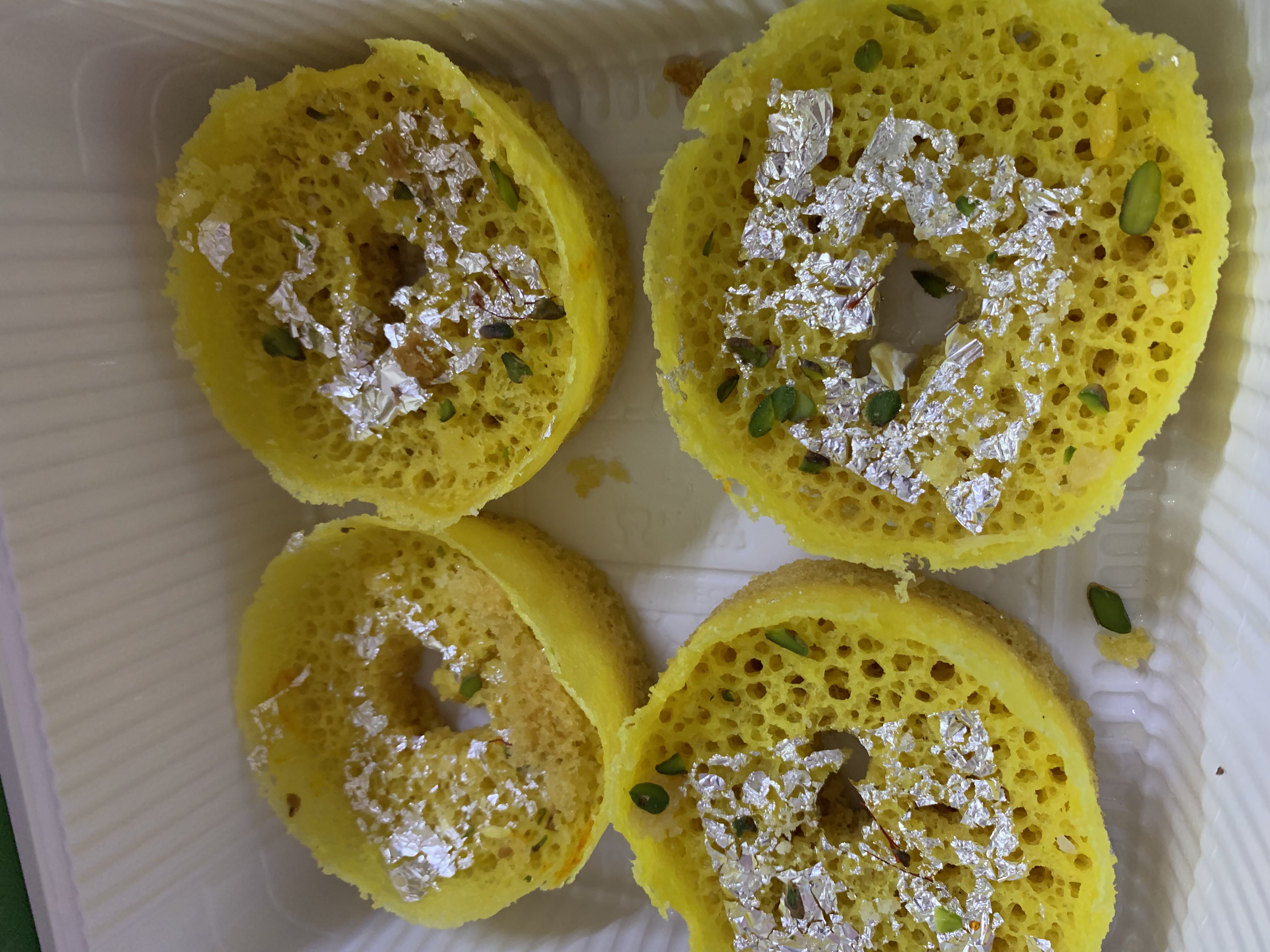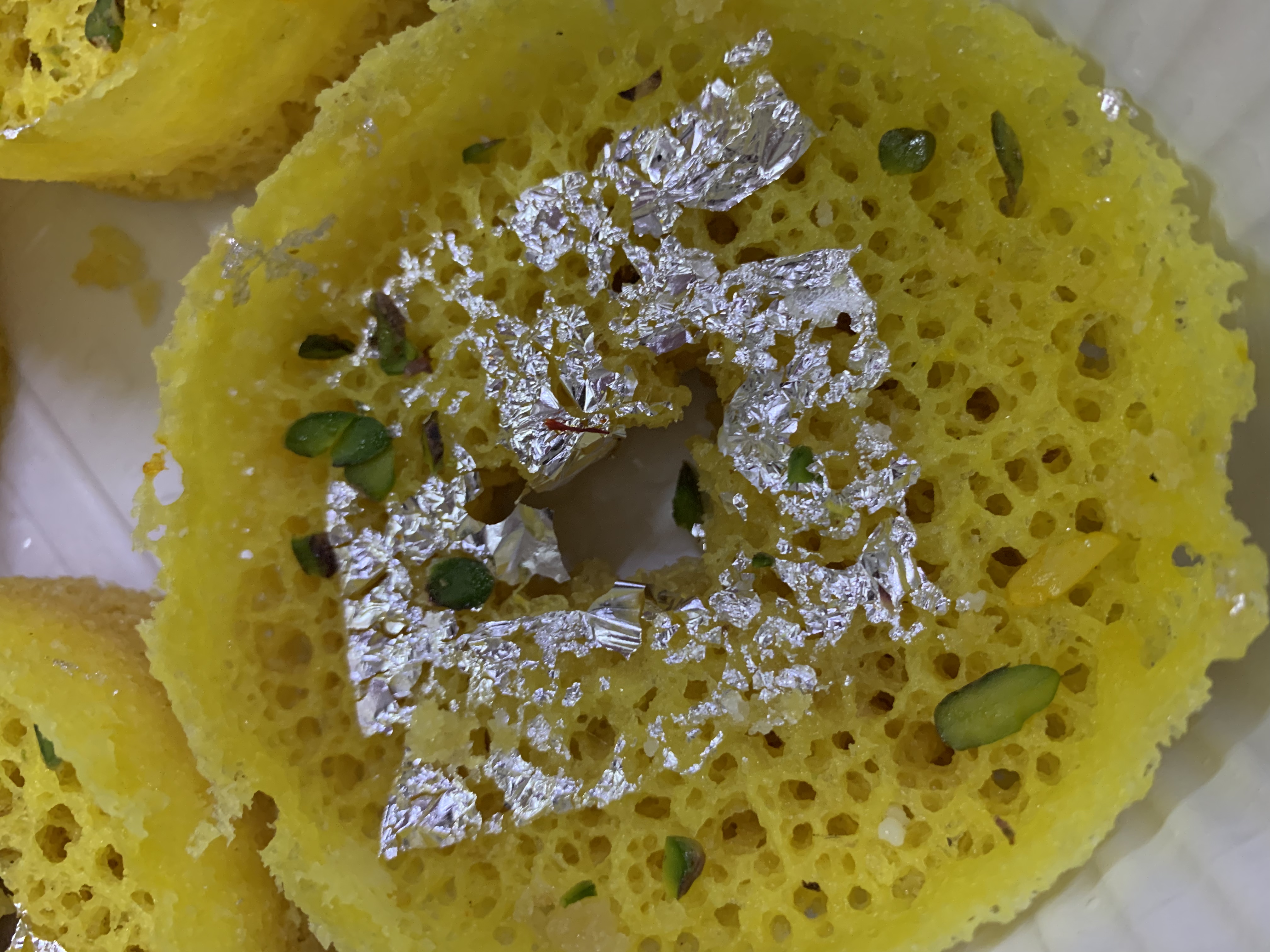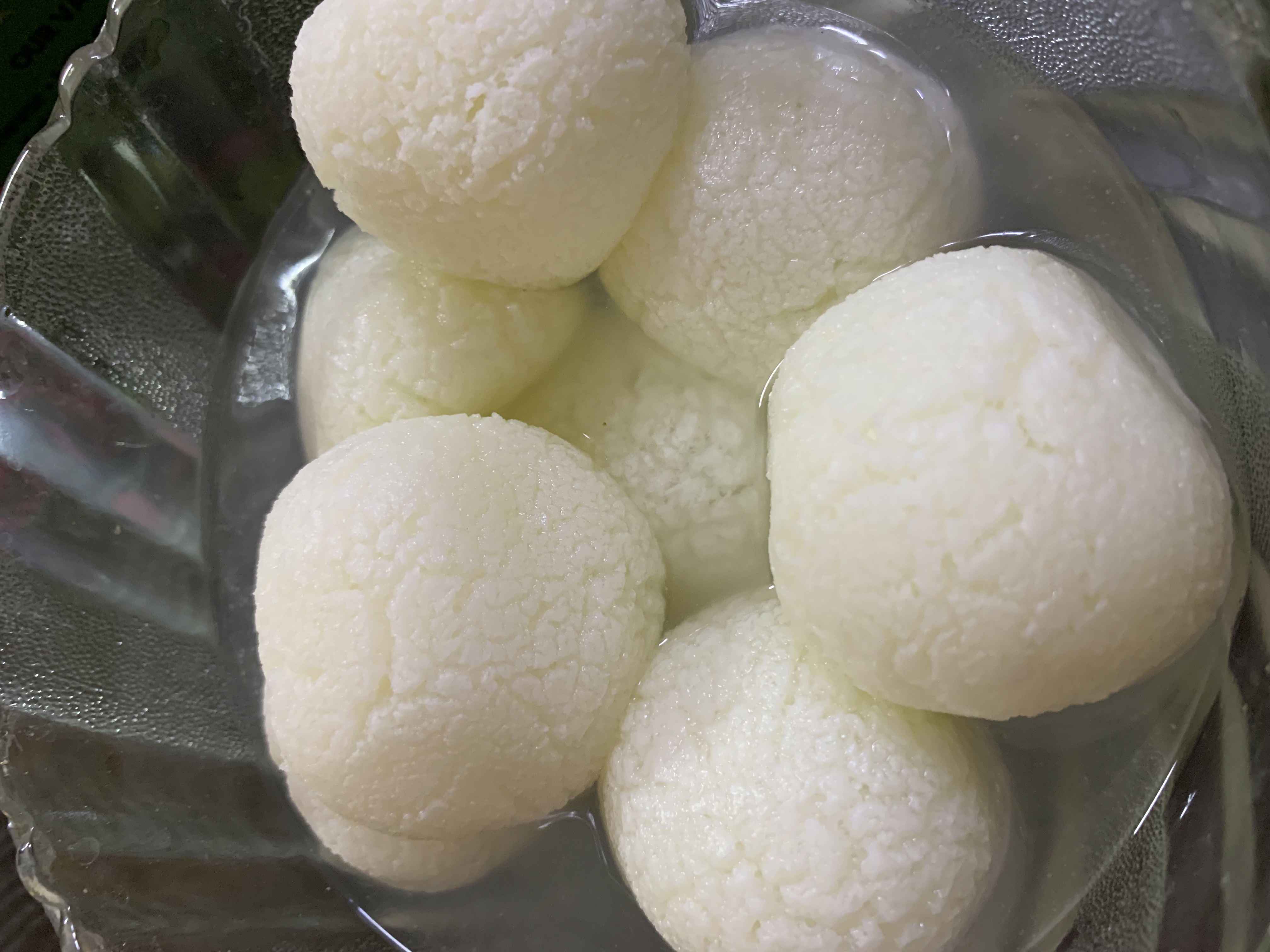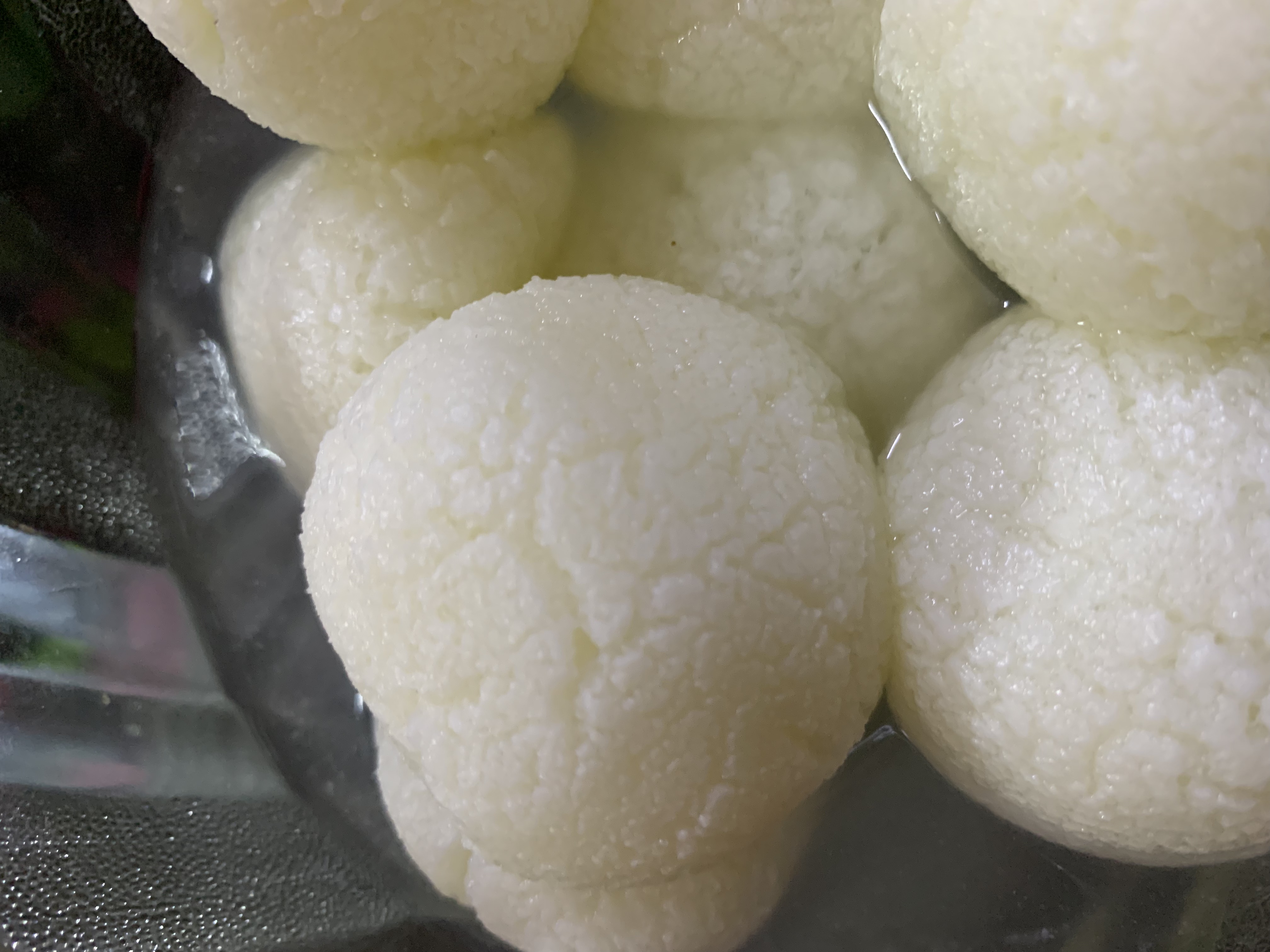Day after tomorrow is a special day in my household as we celebrate the vibrant and joyous festival of Teej. Being a part of Rajasthani family, my mother holds this festival close to her heart.
Teej is a festival that celebrates the monsoon season and the union of Lord Shiva and Goddess Parvati. One of the most exciting aspects of Teej is the arrival of traditional sweets from my maternal grandmother. She sends us delectable treats- Ghewar, a Rajasthani cuisine sweet, and Rasogulla, a Bengali cuisine sweet.

Ghewar, is a unique dessert made from a batter of flour, ghee, and water, which is poured into a special round-shaped mold and deep-fried until it turns golden brown. The fried ghewar is then soaked in a sugar syrup and garnished with nuts and saffron strands, adding a touch of elegance to its presentation. The origins of ghewar can be traced back to the royal kitchens of Rajasthan, where it was initially prepared as a special treat for the Rajput kings and queens.

Rasogulla, is a soft and spongy dessert made from chenna, a form of cottage cheese, which is kneaded and shaped into small balls. These balls are then cooked in a sugar syrup until they become light and fluffy. Today, rasogulla is not only a favourite among the locals but has also gained international recognition as a symbol of Bengali cuisine. Whether it is a wedding, a birthday, or any other special event, it is a must-have sweet on the menu. As my brother is particularly fond of Rasogulla, his excitement knows no bounds when the box arrives.

Teej is also a day for my mother to indulge in her love for vibrant traditional attire and intricate henna designs. She spends hours selecting the perfect traditional Rajasthani attire, complete with colourful bangles, intricate jewellery, and a beautiful dupatta. She then sits down to apply henna on her hands, creating intricate patterns that symbolize love and prosperity.

As the day progresses, the aroma of traditional Rajasthani dishes fills our home. My mother meticulously prepares a lavish feast, including Dal bati churma, kheer (payasam or rice pudding), aloo (cooked potato), and gatte (cooked gram flour dumplings). The kitchen becomes a hub of activity as my mother, with her skilled hands, recreates the flavours of Rajasthan.
As the evening approaches, my mother worships the divine couple for marital bliss and prosperity. Then, our household women dressed in their resplendent attire, participates in the traditional Teej dance. They sway and twirl gracefully, reflecting the joy and exuberance of the festival.
As the celebrations come to an end, we are left with beautiful memories, strengthened family bonds, and a renewed appreciation for our cultural traditions.
Device used for photography- Iphone XS Max.
These pictures are clicked by me and this blog is completely original and free of plagiarism. Thankyou!